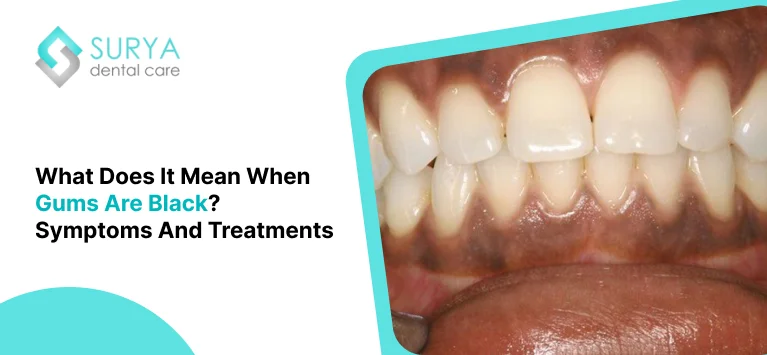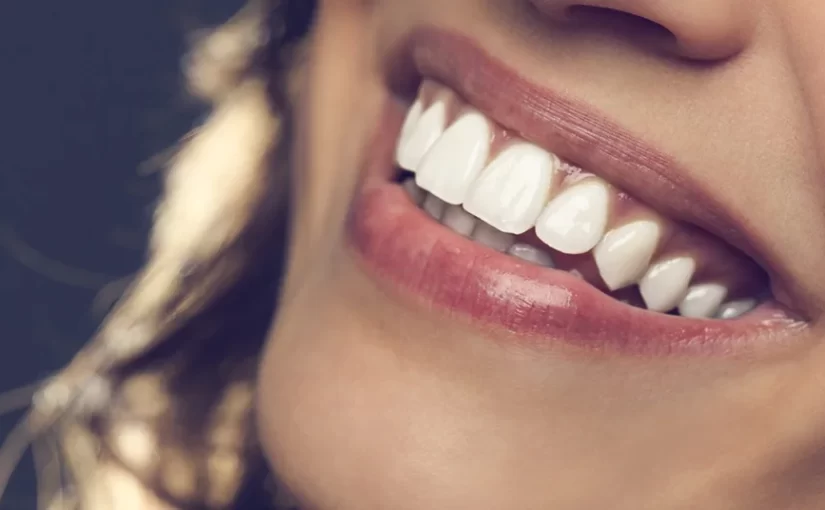What Do Black Gums Mean?
Melanin is the pigment that gives color to the skin and is also present in the gum tissue. In some individuals, this pigment naturally causes darker gums. Melanin pigmentation of the gums can vary from person to person and may appear as uniform darkening or in patches. The color may also vary between different areas of the mouth. This type of pigmentation is normal and does not require treatment unless it’s for cosmetic reasons. However, if the darkening of the gums is not hereditary, it could be a sign of an oral health issue. In such cases, a consultation with your dentist is recommended to rule out potential problems.Black Gums and Periodontal Disease: Normal or Abnormal?
Many people experience periodontal disease, a condition affecting the gums and surrounding tissues. Mild forms of gum disease, such as gingivitis, are relatively common and can usually be reversed with proper oral hygiene and dental care. However, a more severe form of gum disease, known as black gum disease or necrotizing periodontal disease, is uncommon but serious. This condition causes the destruction of gum tissue, bones, and surrounding structures. Black gum disease requires immediate treatment, as it can be a sign of severe underlying health conditions. In rare cases, black gums could indicate a more serious condition, such as oral cancer. A black spot on the gums, especially one that changes in size or shape, may be a symptom of malignant melanoma, a type of oral cancer. If you notice any suspicious black spots, it’s important to see your dentist for an evaluation.Smoking and Black Gums
For smokers, black gums may be a side effect of tobacco use. Nicotine in tobacco products stimulates melanin production, which can cause the gums to darken. This condition, known as smoker’s melanosis, can cause varying degrees of pigmentation depending on the amount of tobacco used and the duration of the habit. Quitting smoking may help reduce the darkening of gums, but in some cases, the pigmentation may persist even after cessation. Smoking is also linked to numerous other oral health problems, including gum disease and tooth loss, making it essential to address these issues with your dentist.Causes of Black Gums
Black gum disease is typically caused by a bacterial infection in the gums. While many types of bacteria are present in the mouth, most are harmless. However, poor oral hygiene can allow harmful bacteria to thrive, leading to infection and the development of black gums. A healthy immune system is usually able to fight off these infections, but people with compromised immune systems are at higher risk of developing this condition. Certain risk factors increase the likelihood of black gum disease, including:- HIV/AIDS or other immune system disorders
- Chronic stress
- Tobacco use
- Malnutrition
- Poorly controlled diabetes
What is ANUG (Acute Necrotizing Ulcerative Gingivitis)?
Acute necrotizing ulcerative gingivitis (ANUG), commonly known as trench mouth, is a severe gum infection that can cause black or grey gums due to the buildup of dead tissue. ANUG is a rapidly progressing condition that causes fever, painful gums, and bad-smelling breath. This infection typically occurs when harmful bacteria accumulate due to poor oral hygiene, stress, lack of sleep, or an unhealthy diet. Early symptoms of ANUG include:- Bleeding gums
- Bad breath (halitosis)
- Excessive saliva production
- Feeling generally unwell
Symptoms of Black Gum Disease
The symptoms of black gum disease (also known as necrotizing periodontal disease) develop quickly and can be extremely painful. Common symptoms include:- Black gums or tissue: Gums may turn black due to dead tissue caused by the infection.
- Deep ulcers: Ulcers at the edge of the gums may extend into the bones.
- Severe jaw pain: Pain in the jaw may indicate that the infection is spreading.
- Bad breath: Persistent foul breath is a sign of the underlying infection.
- Bleeding gums: Gums may bleed easily, especially during brushing or eating.
- Metallic taste in the mouth: This can be another symptom of black gum disease.
- Weight loss or malnutrition: Difficulty chewing due to pain can lead to reduced food intake and weight loss.









Leave a Comment